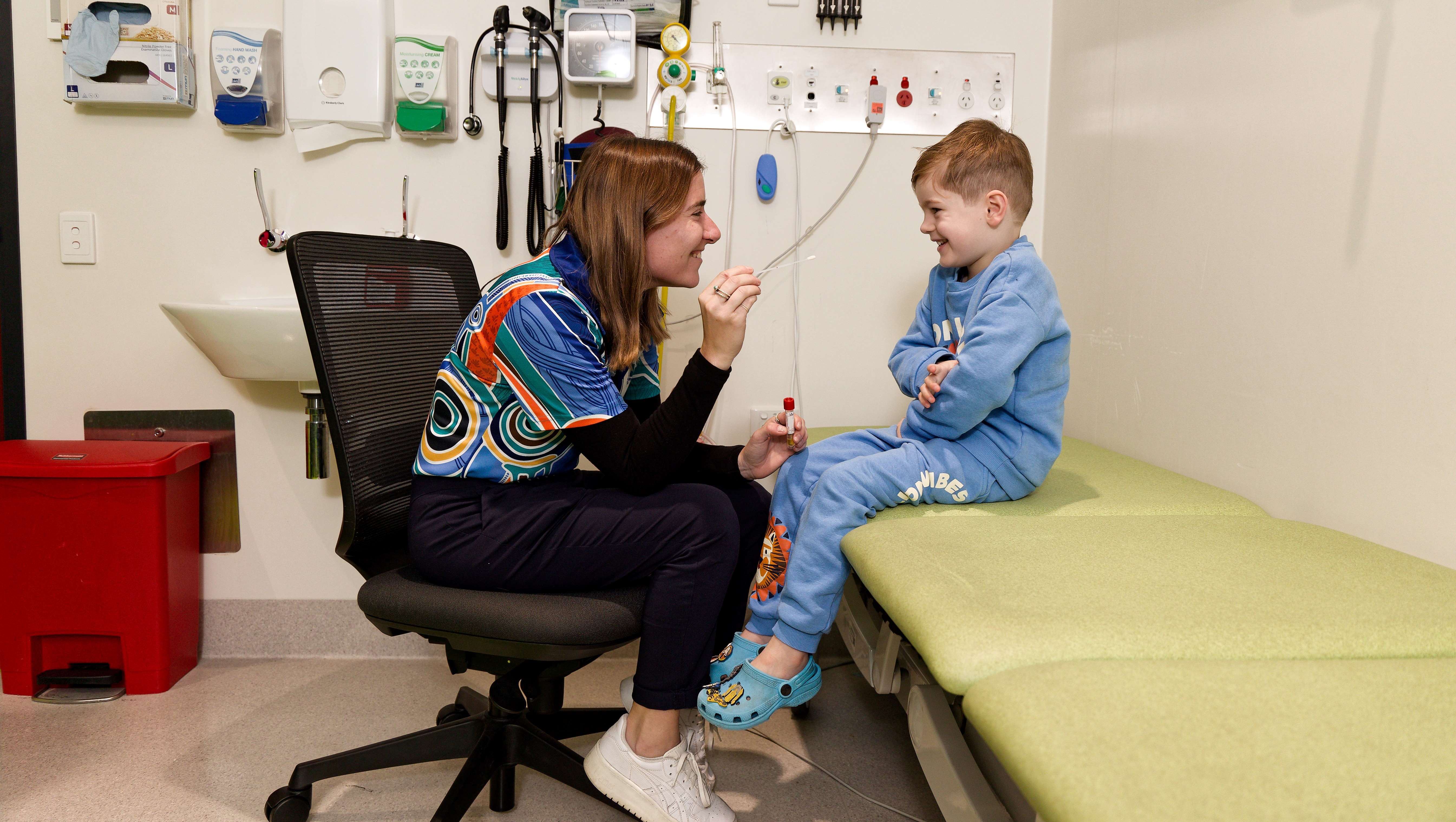Search
Research
Consensus guidelines for improving patients' understanding of invasive fungal disease and related risk prevention in the haematology/oncology setting, 2021Patients with invasive fungal disease (IFD) are at significant risk of morbidity and mortality. A productive partnership between patients, their carers/families, and the multidisciplinary team managing the infection and any underlying conditions, is essential.
Research
Influenza epidemiology in patients admitted to sentinel Australian hospitals in 2019: the Influenza Complications Alert Network (FluCAN)This report summarises the epidemiology of hospitalisations with laboratory-confirmed influenza during the 2019 influenza season. The Influenza Complications Alert Network (FluCAN) is a sentinel hospital-based surveillance program that operates at sites in all jurisdictions in Australia.
Research
Incidence of acute rheumatic fever in northern and western Uganda: a prospective, population-based studyAcute rheumatic fever is infrequently diagnosed in sub-Saharan African countries despite the high prevalence of rheumatic heart disease. We aimed to determine the incidence of acute rheumatic fever in northern and western Uganda.
Research
Viridans Group Streptococci in Pediatric Leukemia and Stem Cell Transplant: Review of a Risk-stratified Guideline for Empiric Vancomycin in Febrile NeutropeniaViridans group streptococci (VGS) are an important cause of sepsis in immunosuppressed children. We reviewed the effectiveness of risk-stratified addition of vancomycin to empiric febrile neutropenia therapy among 107 children with leukemia or undergoing an allogeneic transplant.
Research
A platform in the use of medicines to treat chronic hepatitis C (PLATINUM C): protocol for a prospective treatment registry of real-world outcomes for hepatitis CSafe, highly curative, short course, direct acting antiviral (DAA) therapies are now available to treat chronic hepatitis C. DAA therapy is freely available to all adults chronically infected with the hepatitis C virus (HCV) in Australia. If left untreated, hepatitis C may lead to progressive hepatic fibrosis, cirrhosis and hepatocellular carcinoma.
Research
Hospital admissions for skin and soft tissue infections in a population with endemic scabies: A prospective study in Fiji, 2018-2019Scabies is an important predisposing factor for impetigo but its role in more serious skin and soft tissue infections (SSTIs) is not well understood. Information is limited on incidence of SSTIs in the presence of endemic scabies. We conducted a prospective study of hospital admissions for SSTIs in the Northern Division of Fiji (population: 131,914). Prospective surveillance for admissions with impetigo, abscess, cellulitis, wound infection, pyomyositis, necrotizing fasciitis, infected scabies, and crusted scabies was conducted at the Division's referral hospital between 2018 to 2019. Information was collected on demographic characteristics, clinical features, microbiology, treatment and outcomes.
Research
Developmental outcomes following vaccine-proximate febrile seizures in childrenTo compare the developmental and behavioral outcomes of children experiencing an initial vaccine-proximate (VP) febrile seizure (FS) to those having a non-VP-FS (NVP-FS) and controls who have not had a seizure.
Research
“You can't heal yourself in that setting and you wouldn't expect other people in this country to”: Yarning about housing and environmental health in remote Aboriginal communitiesRemote Aboriginal communities in Australia are located on traditional lands holding deep cultural significance and meaning for residents. However, systemic inequity rooted in colonisation has driven persistent housing and health disparities, with inadequate environmental health conditions within homes and communities a prominent example.
Research
Influenza vaccination in Western Australian children: Exploring the health benefits and cost savings of increased vaccine coverage in childrenTo assess potential benefits and direct healthcare cost savings with expansion of an existing childhood influenza immunisation program, we developed a dynamic transmission model for the state of Western Australia, evaluating increasing coverage in children < 5 years and routinely immunising school-aged children.

Researchers from The Kids Research Institute Australia would like to understand more about respiratory syncytial virus (RSV) and how we can provide the best protection for kids.
